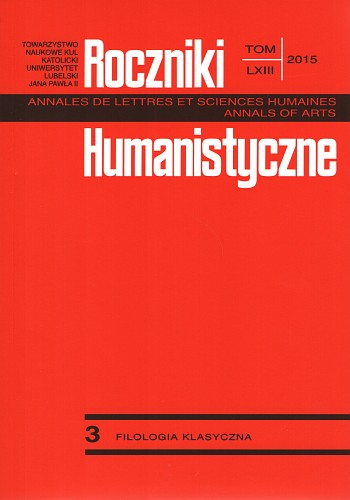Historiē by Herodotus of Halicarnassus – theoretical issues
Historiē by Herodotus of Halicarnassus – theoretical issues
Author(s): Iwona WieżelSubject(s): Philology
Published by: Towarzystwo Naukowe KUL & Katolicki Uniwersytet Lubelski Jana Pawła II
Keywords: Herodotus;Histories;historical writing;natural narrative;dialogue;emplotment
Summary/Abstract: Besides its historical values which imply a certain “accuracy” in presenting historical events and people, it is also possible to stipulate in Herodotus’ Histories these fragments which belong only to the domain of fiction, a genre literature whose basic substratum consists primarily in the description of the world seen through the eyes of the narrator-witness (histōr). In case of Histories, it is difficult to explicitly define how much of it is history and how much is literature. Nevertheless, it is certain that Histories are a special kind of storytelling, which, as shown by a closer analysis, is based on a personal and vicarious experience of the historian and his oral sources that cover several dozens of years of conflict between the East and the West, intertwined with historical, geographical and ethnological descriptions of Greek and barbaric tribes. In such a context the paper will focus on presenting a twofold nature of Herodotean discourse, revealing, on the one hand, the “rising” of the oral history from the sheer activity of dialoguing with people about the recent past, reconstructed on the basis of its formal and cognitive structure (Fludernik 1996), and, on the other hand, the technique of emplotment (White 1973) used by Herodotus to make the story reportable and tellable within the realm of an epic convention which was vivid and influenced the Archaic and Classical Greek literary texts of his times.
Journal: Roczniki Humanistyczne
- Issue Year: 63/2015
- Issue No: 03
- Page Range: 43-52
- Page Count: 10
- Language: English

